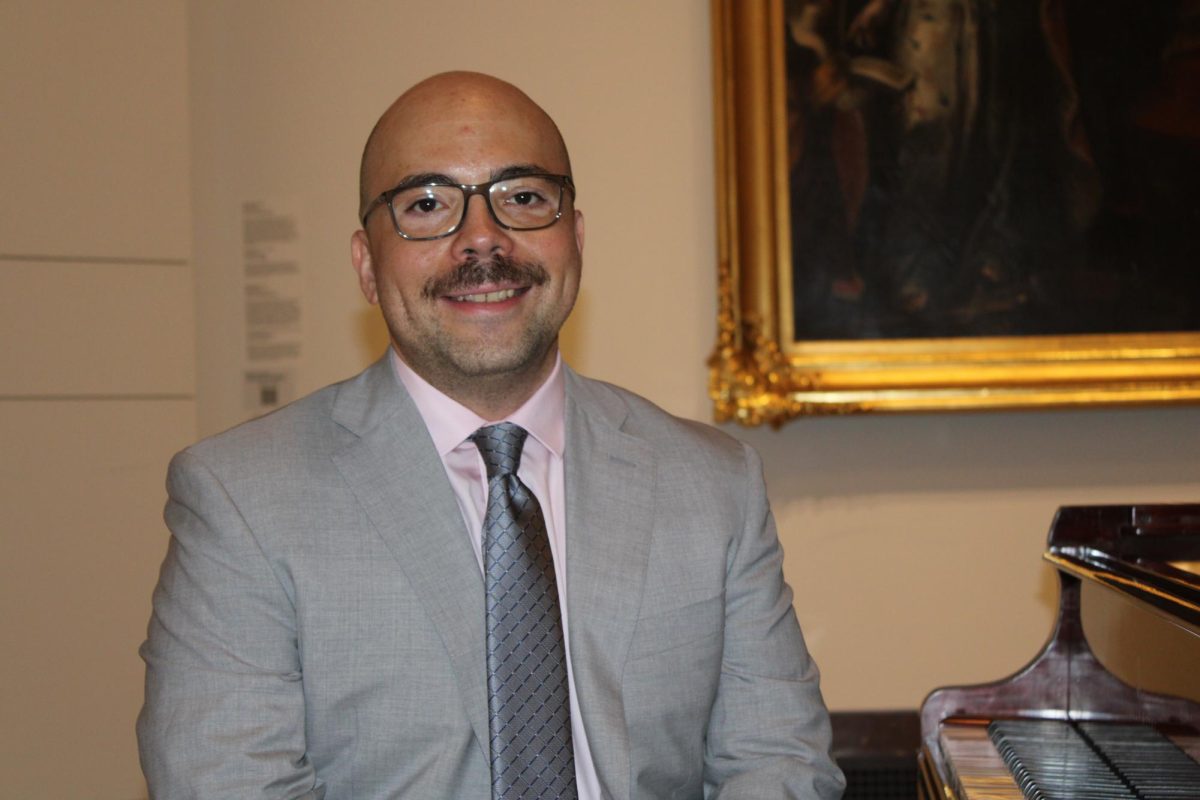Cleanser, hydrating serum, toner, bronzer, blush, retinol cream, mascara, argan oils, brightening cream, powder, body oil, perfume. We live in a world where women are pushed to consume products that will make them feel younger, look younger or just look “put together.”
When a woman doesn’t comply with these attributes, the world often becomes harder; for she is seen as some sort of failure that doesn’t care about her image — a mortal sin for those taught from a young age that the way you look is all that matters.
I wanted to see just how ridiculed I would feel. Did I really need these products? Were they providing me happiness, or was I using them because I’ve been told I must to feel accepted?
I spent seven days in late April trying to answer these questions.
The goal was to take away everything “aesthetic” that I didn’t need: no skin care, no makeup, no hair products, no jewelry, no accessories and no perfume. All that remained: one bar of soap, my toothbrush, toothpaste, deodorant and shampoo.
I was determined to follow the guidelines of Joshua Fields Millburn, Ryan Nicodemus and T.K. Coleman, better known as “The Minimalists.” Emmy-nominated and New York Times Bestselling authors, they’ve grounded their platform in the idea of leading a minimalist lifestyle on a much broader scale. On their website, they write, “Growth and contribution: those are the bedrocks of happiness. Not stuff.”
In an email response to my questions, Millburn left me with a powerful quote outlining the true meaning of “letting go,” something that was pivotal for success in this challenge.
“Letting go is not something you do — it is something you stop doing,” Miller said. “You stop pretending everything is precious or sentimental … when you let go of the clinging, you pick up freedom, peace, equanimity.”
On my first day of letting go, I felt everyone was judging me for not being “put together.”
Deborah Ward, Ph.D., assistant professor of psychology, said the feeling I had was natural.
“Essentially, we are taught from a very young age that [physical appearance] is our literal value as humans,” Ward said. “And when our self-worth is linked to something like that, it’s very hard to separate it.”
Over the course of the week, I gained more confidence. I began to realize that the more comfortable I was in the environment, like going to class or babysitting, the less I was worried.
Then my friends decided to go out that Saturday.
Any college student can tell you that one of the best parts of going out with friends is getting ready. My friends and I like to push our mirrors close together on the floor of someone’s bedroom so we can sing along to the same songs and simultaneously curl our hair and do our makeup. This night, I couldn’t do that, and while I knew it wasn’t the biggest deal, a part of me really missed it.
Ward said this is the environmental factor of vanity: When we are surrounded by people who indulge in their physical appearance, it can be hard to separate ourselves.
“If you’re with five other girls in the stereotypical sorority house, everybody’s doing their hair at the same time every day,” Ward said. “I would think it would be really, really hard to not feel that pressure and obligation to do those same things.”
My friends and I went to Blondie in Manayunk, a restaurant and bar known for its chic and warm atmosphere. I ordered a drink with lemon instead of lime and felt increasingly aware of the people around me and their faces.
As I sat there, I remembered the conversation I had with Lisa Baglione, Ph.D., professor of political science and co-director of the Gender Studies program at St. Joe’s. She said the reason why we feel so exposed without some sort of product is because the way we like to look “has been defined by the world.”
“Most women I know who partake in a few things, but not a lot of beauty products, they would normally say, ‘I do this because I need this to feel good about myself when I go meet the world,’” Baglione said.
Stirring my drink, my face bare, I realized that while I have been conditioned by the world to feel that I am not complete without it, the opposite is true. Makeup and hair and accessories are not things of evil, but when we cling to them as things to save us from feeling like outsiders, it starts to feel like they could be.
Now, I’ll be transparent. On my first day back, I rushed to my face wash, tinted sunscreen and earrings. But I didn’t bring everything back. I brought back the things I knew were intentional to me and made me feel good. I no longer clung to the products I just used because I was told I should.
I was reminded of Millburn’s words: “Yet when you let go of the clinging, you pick up freedom, peace, equanimity.”















































